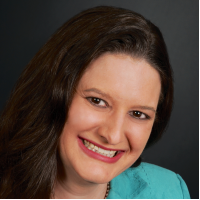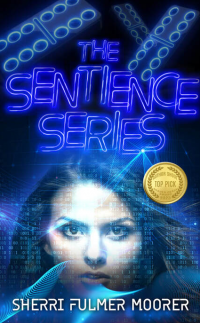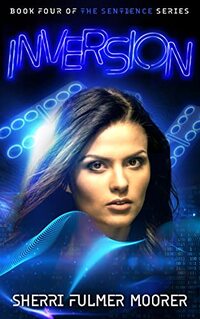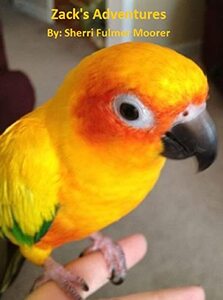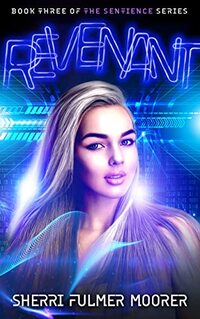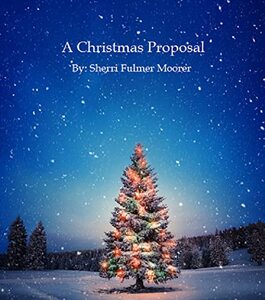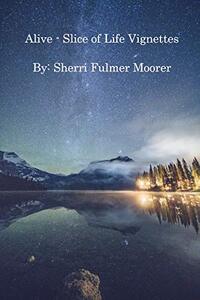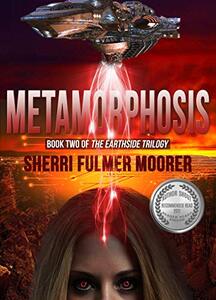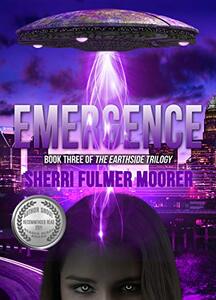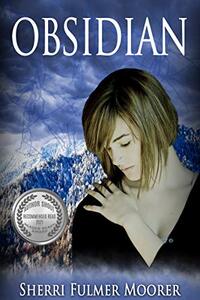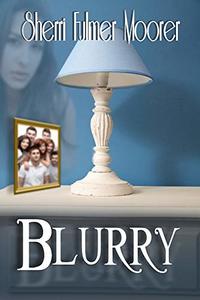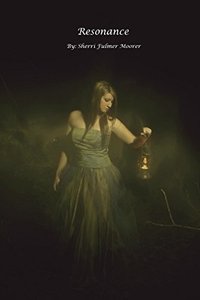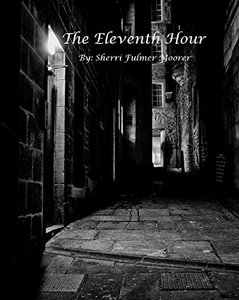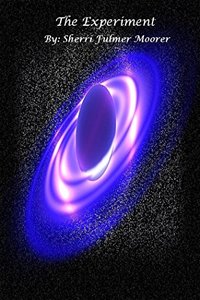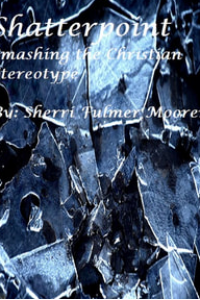Sherri Fulmer Moorer Interview Published on: 11, Dec 2018
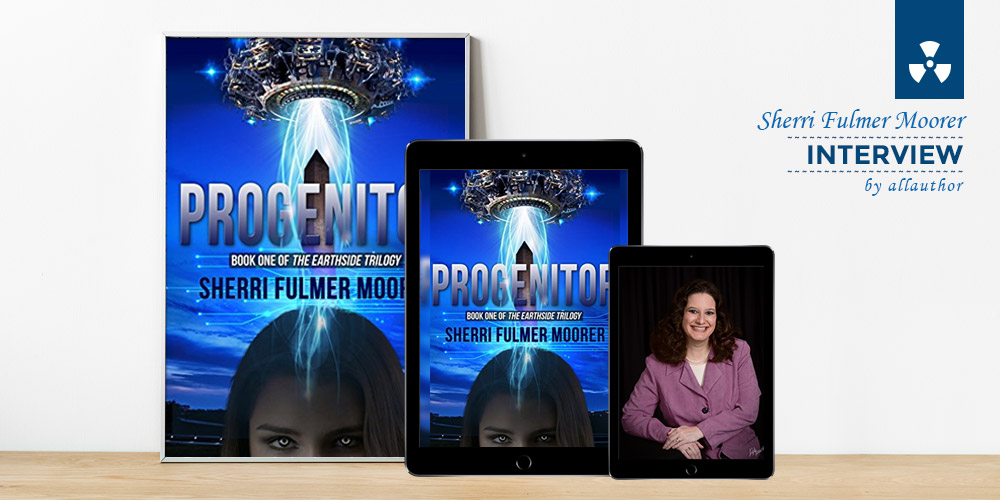 Where did you grow up? Have you ever written about your hometown or your own childhood experiences in any of your books?
Where did you grow up? Have you ever written about your hometown or your own childhood experiences in any of your books?
I’ve lived my entire live in Columbia, South Carolina, and it’s reflected in about half of my books. I try to spread out my settings to include places I’ve visited, but I always seem to gravitate back to central South Carolina as a common setting. Even the small towns I’ve developed for other novels, like Woodland in Blurry and Quarantine, are based on the suburb outside of Columbia that I grew up in.
Since you are many other things in addition to being an author, how do you manage time between writing and being a full-time Program Assistant?Carefully! The biggest challenge I face with writing and a full time job is time management. I have to accept that I’ll have, at best, perhaps two hours a day, four to five days a week, to work on writing or book publicity. It’s frustrating, especially when I’m on a roll with a major project, but life won’t wait for you to finish one more chapter. I have to embrace and fully utilize the time I get, and to accept that progress might happen slower than I like.
When did you decide to finally sit down, write a complete book and get it published? Tell us a little about your debut book and how it has helped change your life for the better? Is there anything you wish you could've done differently?I decided to write a novel and pursue publication in 2000. I’ve always wanted to be a writer, but I got away from writing while in high school and college. I graduated college in 1997, got married in 1998, and we finally had enough money to buy a computer for our home in 2000. Buying that computer inspired me to bring my writing dream back to life. My first published book was a Christian/inspirational book titled Battleground Earth: Living by Faith in a Pagan World. I was thrilled to finally achieve my dream, but in retrospect I realize the book was awful, and wish I had held off until I was more mature and developed as a writer. My next published book was Blurry, my young adult mystery novel, in 2011, and I’m a lot happier with that novel. Part of me wishes Blurry had been my first published novel, but the bigger part of me is grateful for what I learned about the writing and publishing process with Battleground Earth. I had no contacts or connections in the book industry when I started, so I learned through trial and error. I often joke that I started writing with less than nothing, and it took me a few years to work my way up to nothing before I started to learn and grow as a writer. Battleground Earth was that process for me, as it published in 2004. Sadly (or not), the publisher folded a couple of years ago, so it’s out of print. I admit that I didn’t push getting the rights back to republish it. I’ve moved on and have plenty of other, better titles to promote now.
What gave you the idea for your book "The Earthside Trilogy?" What would you do if, one day, you wake to a world where an alien presence has been revealed?The Earthside Trilogy was inspired and influenced by my father-in-law’s decline and eventual passing with dementia. I started writing Progenitor (Book One) five days after he passed away. It was a powerful experience because this was my third experience with a family member passing with dementia, but it was the first time my husband and in-laws dealt with it. I had learned to disconnect the person from the disease through losing two great-aunts to it (one when I was eight years old, and one when I was 21). My in-laws took it much more emotionally, and when he did pass away in 2014, I was so disconnected that I didn’t feel human anymore, especially given their grief and sorrow. When you experience dementia in a loved one multiple times, you learn to grieve through the progression of the disease, so once it’s all over, there isn’t much left but the final formalities. It was during his final months that the question of “what if the aliens are us?” started to form the idea for The Earthside Trilogy. Writing the trilogy was a great way for me to deal with that gap between supporting my husband in his grief over losing his father, and my own seemingly “unnatural” reactions to the situation. I don’t know what I would do if I woke to a world where an alien presence is a reality. Truthfully, I believe aliens make for good fiction, but I’m doubtful that they actually exist. I’m not saying it’s impossible, but I think it’s improbable.
When starting a series, do you decide beforehand how many books and characters you want to write about? Or do you just begin and see where it takes you?I start with a general direction for the series and primary characters, but I hold that loosely because it typically develops on it’s own from there, despite my plans. I don’t write an outline for my fiction novels, because I like to leave the story open to develop as I write. I learned this while writing Splinter for National Novel Writing Month in 2010, when I found myself opening a plot point that I didn’t expect which took the book in an exciting new direction, but destroyed my carefully laid plan for the plot.
If you could describe your book "The Eleventh Hour" in three words, what would they be? How did you first get the idea for this book?Random horror stories. I’ve often dabbled in writing short stories, but fully focused on it because it seems I’m always working on a novel. I want to improve in this area, because writing short stories is so different from novels. You have to narrow in your focus to a single emotion to pull off a powerful short story, and that’s something I struggle with. Go figure that the longer, more complicated works are easier for me than the short stuff! I actually keep a writing journal to work on these random ideas, and they occasionally turn into their own stand alone stories or are incorporated into one of my novels. The Eleventh Hour is a complication of these journal stories that I felt were good enough to publish, but didn’t have a place in larger works. Not yet, anyway!
How did your writing process change from "Move" to "Obsidian"? Whom do you relate to the most - Ruby or Claire? Why?Move and Obsidian were the last two paranormal mystery novels that I wrote, and they both have a special place in my heart. I hadn’t planned to write Obsidian, but readers liked Move a lot, and it gave me a nagging feeling that the story wasn’t really over. While I still stand by how Move ended, it seemed inconclusive and to not really give appropriate closure to the story. It wouldn’t leave me alone, so I forged on with the tale, and was pleased with how it finally ended in Obsidian. I think the biggest change I experienced was in perspective, and perhaps it shows. Move was written a couple of years after a major work move, while I was contemplating acceptance of change and adjustment to new reality. Obsidian was written a couple of years later, when my father-in-law’s decline with dementia hit the final stages of bouncing amongst hospitals, rehabilitation facilities, nursing homes, and all of the messy emotions that happen when a loved one’s health is failing. I think you see the darker theme emerging in Obsidian as my personal life focus shifted from changes in the workplace to changes in the family. Ruby and Claire were friends to me, and it was a comfort to revisit that tale and bring it to an appropriate conclusion that tied up the loose ends and gave a sense of hope for all of the characters in both books. I like both characters equally, because I feel they each reflect a different part of myself. I did eventually combine both books into The Tanger Falls Mystery Box Set, so readers can get both tales together and see how they flow together.
What kind of takeaway do you want your readers to get from reading your books? What inspired you to write "Lost and Found?"I want readers to understand that there’s always hope. Life is change, and we are always going through seasons that will challenge us in one way or another. I hope my novels give readers a mirror to see themselves and their struggles, and to open their mind to new perspectives, wisdom, courage, strength, and hope to navigate their own life. But I want this to happen at a subconscious level, because the primary purpose of reading fiction is to escape reality. I hope my novels provide that escape while working at a deeper level to help readers see parallels that apply to their own life. As for Lost and Found, that was another short story complication much like The Eleventh Hour. Lost and Found consists of journal stories where women find hope by standing through difficult or painful circumstances that result in drastic life change. Change is a universal issue that we all face, and I think it’s important to understand that our joy depends on being able to accept that nothing is permanent, to enjoy the blessings we have, and to embrace the simple joys that each day offers.
Have you ever thought of collaborating and writing a novel with another author? If so, who did you have in mind and what kind of story would you want to write?I did work on a collaborative project in 2014 titled Night Life Paranormal Short Stories. It was a compilation of stories by several women writers, and I had fun doing it. It was great to put together that project with so many talented and inspiring writers. Unfortunately, it was also somewhat difficult, because we were coordinating across several different time zones and even countries on this project, and doing that with a full time job was challenging. Another thing is that my work was drastically different from the other stories, because the romantic aspect of the story wasn’t my main focus. I felt like I “stuck out” a bit more, as I was transitioning from writing mystery to science fiction at that time, and declined offers to work on other projects. I wouldn’t be opposed to doing collaborative projects in the future, but I’m not seeking it at this time.
How did you come up with the idea for "So You Want to Be a Writer?" What is the one thing that every aspiring writer should keep in mind?I wrote So You Want to Be a Writer because so many people asked me how to become one. It seemed like a good idea to have everything combined in one short book that could serve as a reference guide. It certainly isn’t a comprehensive guide to becoming an indie author, but it gives a good framework and the most common information and advice that I pass on to potential writers. I updated it earlier this year to include information on self publishing and promoting, so I hope the expanded guide provides a good basis of support to help those starting their own writing career.
How do you think your experience of being a book reviewer has helped you shape into an author? What is the best review you have ever received for your writings?I feel that being a book reviewer puts me in touch with my readers, because it allows me to look at being an indie author from the other end of the spectrum. Writers do need to be prolific readers as well, and being a book reviewer requires me to critique emerging work with a discerning eye that I can take back to edit my own work so it connects with readers better. It also just feels good to help and support other indie authors! We are a community and need to support others. I frequently recommend the books I read and review to others. The best review I ever received was from BookViral for Progenitor, Book One of The Earthside Trilogy. Not only was it an outstanding review, but I could tell that the reviewer really got into the story and that it resonated with them.
As a writer, how do you keep track of all the different characters and stories you've written? Who is your favorite in the book, "Resonance?"It can be difficult to keep track of all of those characters, especially once you’ve published more than three or four books. I’m better at remembering plots I’ve written than actual characters once I get a couple of years out from the publication date of a book. Often, I have to look over my copy of the manuscript to refresh my memory of the specifics of my novels. I suppose that’s a good problem to have, because it means my online bookshelf is broad. Resonance is a long story close to my heart because I had so much fun writing it. It was inspired by seeing a news article about a large family estate up the road from my home for sale. The widow who owned it was resisting a sale to developers, and really wanted to sell it to a family so the homes could continue on the tradition as a private residence. I thought that was inspiring, especially since I live on family land (my husband and I build on my great- grandmother’s estate). Family estates are filled with a rich sense of history (and mystery), and I wanted to share that in Resonance. I don’t think readers have picked up on this yet, but Kalea Kerner, the main protagonist in The Earthside Trilogy, lives on that same estate with her parents and aunt. Annaliese, Kalea’s cousin, mentions an old family Halloween story that’s a direct tie-in with Resonance in one of the The Earthside Trilogy novels.
How much time do you spend while researching before you start writing a Science Fiction? What was the most unusual fact you learned while researching for your book, "The Experiment?"I usually have to do some research before beginning a rough draft of a novel, and the research continues until the final draft is done. Honestly, I don’t stop researching. I even look up research on random ideas I have for journal stories, but for a novel it’s an ongoing process. I typically allow at least one or two months of research before I begin to draft a novel, and then keep researching depending on how the plot develops. The Experiment was actually the least amount of research I’ve done on a novel, because I recycled the research I did for Splinter on that novel. I think the most interesting thing I learned was that Jupiter emits a lot of light and radiation, and most scifi writers don’t account for protection from it. I struggled with it myself, before relying on heavy shielding and limited time in space to account for protecting people from it’s effects.
Out of all the genres that you have written in so far, which one do you enjoying writing the most? What are you currently working on?Science fiction is my favorite genre to write in. I enjoy creating and immersing myself in future versions of the world, and enjoy the complexity and research required to write science fiction. Of course, it can get frustrating sometimes, but the gratification I get from seeing a new world come together makes the work worth it. I would like to return to writing mystery novels again someday, but even that might take more of a sci-fi bend than my previous novels did. There’s something about the potential of the future that fascinates my muse. I released Trigger, A The Earthside Trilogy Novel, on October 25, 2018. It’s a scifi novel that takes place in The Earthside Trilogy universe between Metamorphosis (Book Two) and Emergence (Book Three). It’s a stand-alone novel about a scientist who dies and goes to Heaven –or so she’s told. The question is, why does Heaven need nanotechnology, and why is the so-called “leader” of this community obsessed with erasing their life memories? I’m also working on another novel in this universe titled Convergence, which is due for release in April or May 2019. That book take place 129 years after the events of The Earthside Trilogy, and about a penal colony in the Kupier Belt that is studying a spacial rift that creates convergences into parallel universes. Convergence is the most complicated novel I’ve ever written to date. I had sticky notes all over the place drafting that novel! Thankfully, I had great beta readers to keep all of those parallel universes straight, and to help me pull the novel together into a coherent story that I believe readers will like, and that serves as an outstanding progression of events from The Earthside Trilogy.
Share Sherri Fulmer Moorer's interview
Author Sherri Fulmer Moorer has lived her entire live in Columbia, South Carolina, and it’s reflected in about half of her books. The biggest challenge she faces with writing and a full-time job is time management. She graduated from college in 1997, got married in 1998, and then finally had enough money to buy a computer for their home in 2000. Buying that computer inspired her to bring her writing dream back to life. She wants readers to understand that there’s always hope. Science fiction is her favorite genre to write in. Her first published book was a Christian/inspirational book titled Battleground Earth: Living by Faith in a Pagan World.
